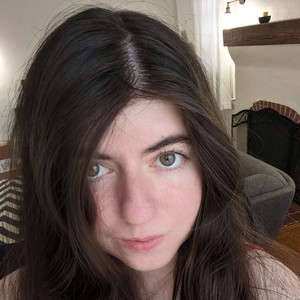She jumped onto her bed, flicked on a lamp, and held the textbook to her chest. The researchers had cleaned out anything they could find that belonged to her parents, and Maya was only able to hide a few things. They'd said it was to keep her from having another "break." She'd been terrified that if Mr. Tapia found out what it meant to her, he'd take this book, too.
When Dad died, she'd stared out the windows of her bunker and begged the ocean to swallow her. The next day, she'd woken up surrounded by people, except the researchers told her it wasn't the next day. Three days had gone by and she didn't remember a thing. That month, there were more visitors to her bunker than she'd seen in her life, and yet Maya had never felt more alone.
They'd told her that she was a hero, that if she could pull through and prove humans could grow up just fine underwater, then they'd be able to move whole cities under the ocean. She knew she was important—had been told so a thousand times before—but this time, the reminder of their mission had made her feel trapped. The researchers didn't want her to be miserable, but it was hard knowing her data would always be more valued than her feelings.
But that was two years ago. Maybe she didn't have to hide her mementos anymore. It felt silly, but she had to make sure this one was still the same.
She flipped to the front of the book. There were Mom's words, scrawled in pen over the whited-out introduction. She'd written a love letter to Dad and Maya.
Under it was Dad's handwriting: You're not supposed to write in books.
Mom had written a reply: I only replace the words you don't read anyway. Now you have to think of me while you're at work! My heart follows you there.
Mom's "replacements" were scattered throughout Dad's books. Occasionally, he broke his own rule and wrote back.
Maya ran her fingers over the lettering. She could feel the indentations the pen had made. It made Mom's words feel more real than the printed ones, as if hers were the ones that really belonged in the book, and yet years of Maya doing this had left the ink smudged.
A tap at her window—more like a thunk. She hid the book under her covers before seeing who'd made the sound: an octopus. It climbed up her window to get a better look inside, pale suction cups popping loudly off the glass. The floodlights outside would attract all sorts of animals, but octopuses would check in even when the lights were dimmed for the night; they were curious.
This one was as big as her, about twice the size of the ones she usually saw. One round eye stared in. It swiveled its gaze to her, the lamp, the bookshelves across the wall, the clutter on the dresser, back to her. Maya waved. This intrigued the octopus; it took a step closer.
Deep in the dark, a wide shadow shifted.
The octopus released its grip and fled. Maya's stomach turned.
She hurried to Stepmother's room. It was locked. She knocked. "Mother? Mother there's something outside." She knocked louder. "Mother?"
No answer. She rushed downstairs.
Tilapia was asleep this time, snoring on the couch. She ran past him to the living room, where the windows were tallest: shades of black, as far as she could see. Maybe it was nothing. Maybe she should have gone back to bed.
She caught a glint of silver in the distance, and then another, and another—far enough apart that it had to be several different fish. Had the octopus really been fleeing, or did Maya just mistake a bunch of fish for something more ominous?
Her breath was fogging up the glass. She took a step back. She saw silver again, and this time could make out a pattern of scales. The dimmed spotlights glittered over the creatures as they swam. It should have been pretty, but nausea nipped at her gut.
Soon, she realized why: the scales didn't belong to a they, but an it, and it was both very large and coming towards the bunker. Something primeval sparked in the back of her brain, yelling at her to run, but she had nowhere to go.












Comments (9)
See all